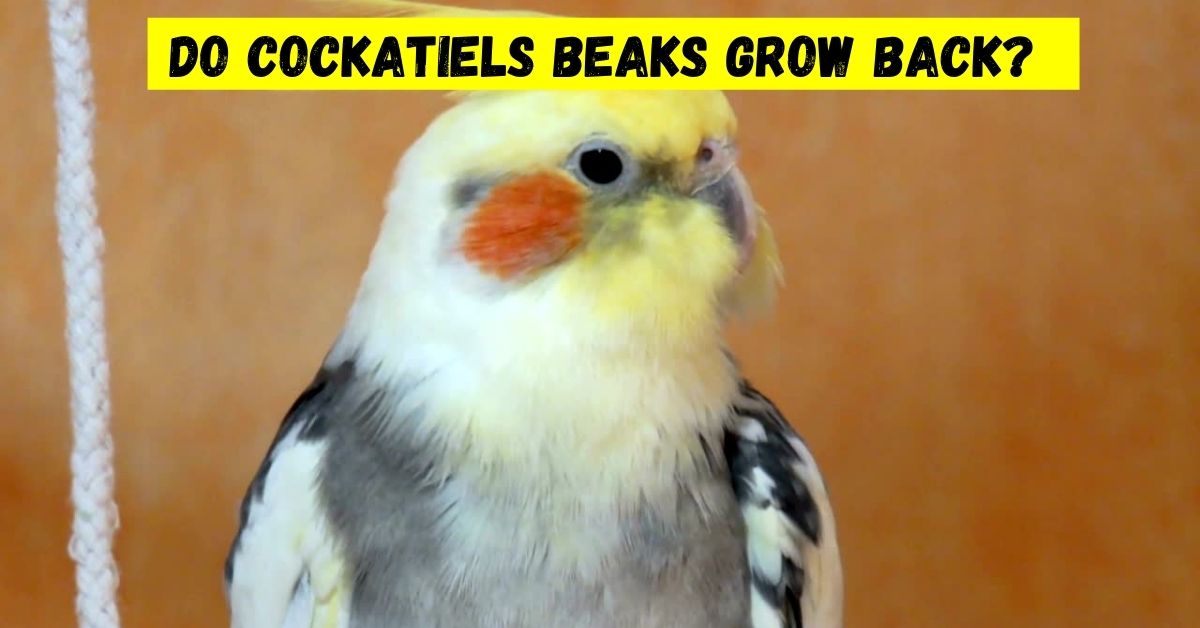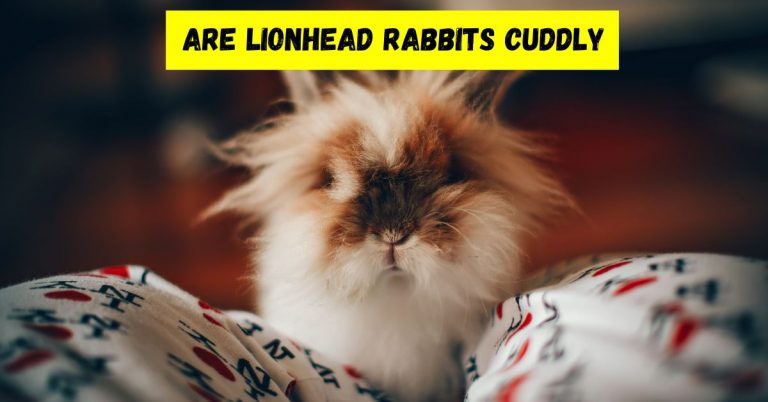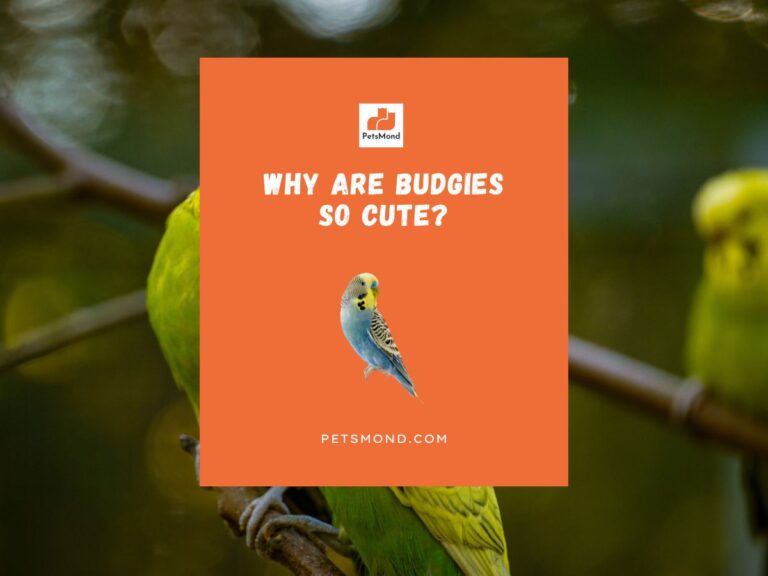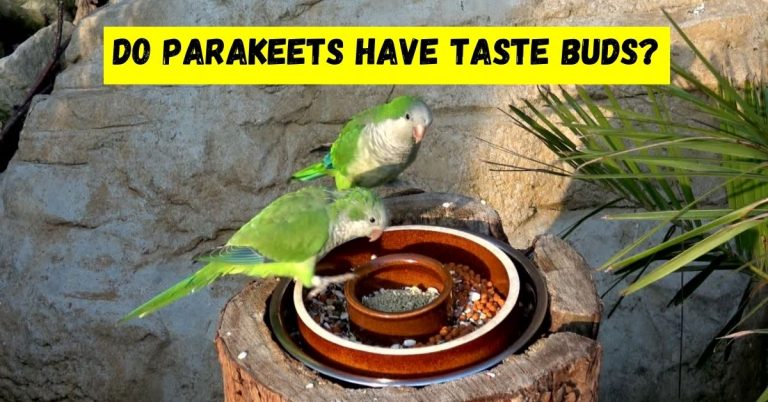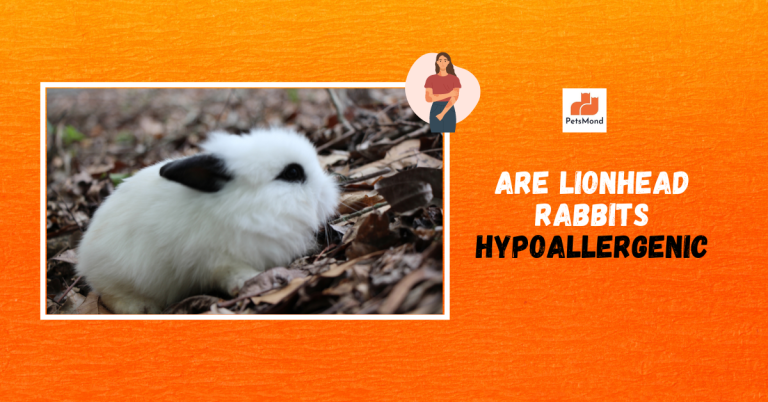Do Cockatiels Beaks Grow Back? (Can They Survive?)
Cockatiels are delicate creatures that can lose their lives when they fracture or lose any of their body parts. Having handled over 100 cockatiels in the last few years, I have hardly seen cockatiels losing their beaks. Of course, it is a less-occurring phenomenon but you should pay attention to it if you are raising cockatiels at home.
Do cockatiels beaks grow back? Cockatiels’ beaks do not grow back but can outgrow and result in disfigurement. Some cockatiels that broke beaks experience growth around the neck and extend to other parts of the body.
When we talk about beaks, we need to talk about their survival rates as well. Based on my experience and the vet’s opinions, the article details all about beaks.
How to prevent beak breaks in birds?
Cockatiels are beautiful, interesting birds that make wonderful pets. Despite their small size, they can be quite energetic and active. They love to play and explore, so it is important to provide them with plenty of toys and other items to keep them entertained.
There are a few things you can do to help prevent your cockatiel from breaking its beak.
Toys
First, make sure that your cockatiel has plenty of toys and perches to chew on. This will help keep its beak strong and healthy.
Keep them engaged so they don’t get depressed and hit on hard surfaces.
Branches
You can also provide your cockatiel with branches from trees or other natural items that it can chew on. This will help keep its beak trim and shaped the way it should be.
If you notice any problems with your cockatiel’s beak, such as cracking, chipping, or excessive growth, be sure to take it to the vet for an evaluation.
Thinking of having other birds with your cockatiels to keep them engaged? Here’s an article – What birds can be kept with cockatiels?
How long does it take for a bird’s beak to grow back?
It takes between 3 weeks and several years for a bird’s beak to grow back if the damage to keratin is minimal. Severe damage to the beak and associated bone can result in permanent stoppage of growth.
Can cockatiels break their beaks?
Cockatiels are prone to breaking their beaks. This can happen due to an injury or collision on a hard surface where beaks can have significant effects.
However, cockatiels can also suffer from health problems that can lead to a weakened beak. While a broken beak can heal, it is important to get your cockatiel to a veterinarian as soon as possible.
Can a bird survive with a broken beak?
The survival of a bird with a broken beak is proportional to the degree of damage (like a fracture) and blood supply. Birds that have lost their beaks don’t survive. The damage closer to the tip indicates more chances of healing.
A beak is mostly bone and dry keratin, so it’s not as if a veterinarian could just splint or stitch it back together. Even if the break is clean, there may not be enough blood flow to support healing. Blood vessels are sparse in the avian beak, and what little circulation exists is from the bones, not skin.
If the break is severe enough, the bird may not be able to feed properly or survive without supplementary feeding from its human caregivers. In some cases, a veterinarian can perform surgery to cut away damaged parts of the beak and allow new tissue to grow back over time. This treatment option is typically reserved for very serious injuries since it can be quite traumatic for the bird and may not result in a perfect beak.
In several cases, a tiny crack is repaired by a vet while a serious damage resulting in loss of the beak can turn fatal.
Also Read – Can a budgie live with one leg?
What to feed a bird with a broken beak?
A bird with a broken beak needs mashed foods that are easy on their beaks and tongues. These include mashed bananas and mashed vegetables like sweet potatoes, carrots, and beans.
Avoid giving them any foods that are hard to chew or swallow. Also, make sure their food is soaked in water so they can easily consume it. Lastly, provide them with a clean source of water at all times.
Related:
How to clip a cockatiels beak?
An overgrown beak needs to be clipped. Remember to wrap your little bird in a towel and use a grinding tool to slightly trim and then file the beak.
We do not recommend pet parents clip bird’s beaks as this is a tricky process and can result in severe beak damage. Some pet parents prefer placing a cuttlebone within the cage so that the cockatiel gets occupied with something else and the beak can easily be trimmed.
A strong word of caution is to take your cockatiel to an experienced vet who offers trimming services. This is because not all vets or pet service providers offer excellent, risk-free beak trimming services.
FAQ
Do cockatiels need to have their beaks trimmed?
Cockatiels and other birds need their beaks trimmed when they overgrow because of malnutrition, health complication, and the absence of perches. However, the need is minimal as they are bestowed with natural trimming capabilities.
Do birds beaks grow continuously?
The outer region, keratin, constantly grows and gets trimmed automatically based on the bird’s actions while the inner region limits its period of growth.
How fast do birds beaks grow?
The outer region, keratin, grows by at least a quarter inch each month till the end of the first year. However, the bone remains stable and does not grow.
Do birds beaks fall off?
Beaks do not fall off unless birds get severely attacked or injured resulting in loss of beak.
Final Thoughts
Beaks of a bird are as important as any other body parts. Unless beaks are fractured or severely damaged, their beaks can always grow as the outer layer (keratin) is prone to rapid growth up to 1 year.
If you are raising cockatiels, make sure they do not scratch or hit their beaks to harder surfaces.

